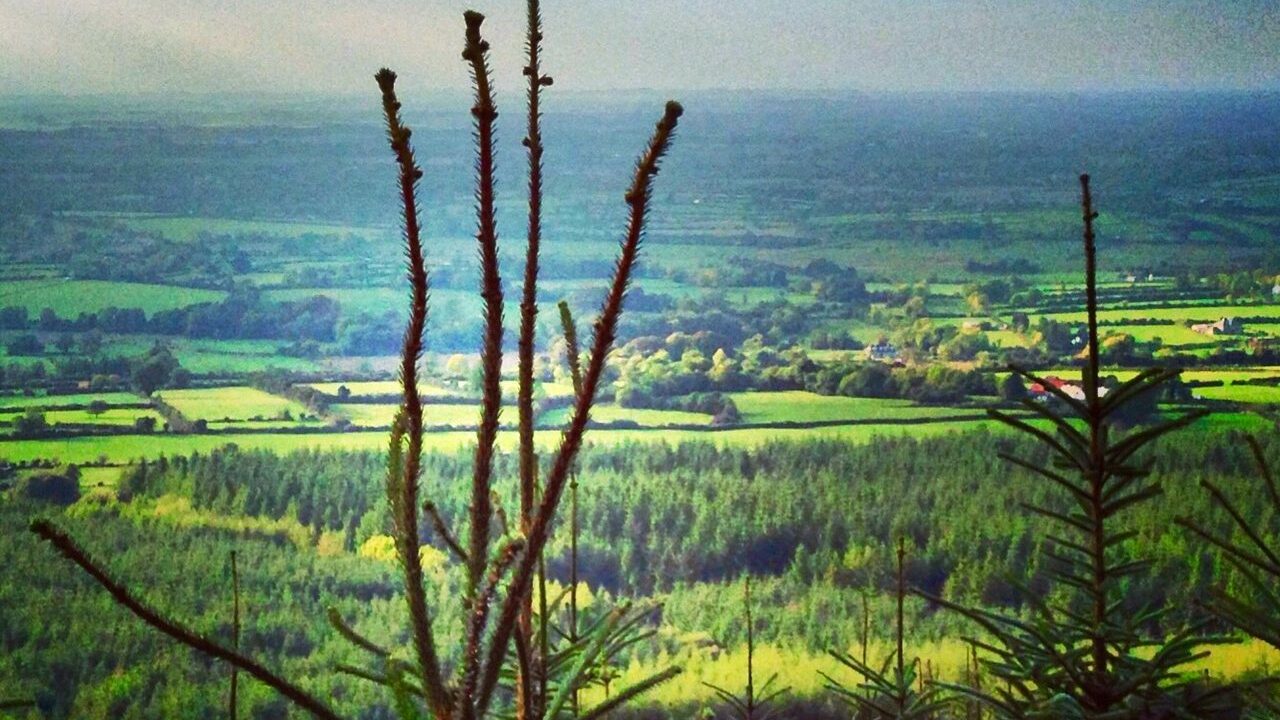The launch of a new Knowledge Transfer Group (KTG) for the forestry sector has been met with a scathing backlash from the Irish Natura and Hill Farmers’ Association (INHFA).
Earlier today, the Minister of State at the Department of Agriculture, Food and the Marine, Andrew Doyle, announced the new initiative – based on the success of a pilot scheme – whereby a professional forester will facilitate learning through a combination of both classroom-style and practical elements.
Although the minister has stated that the vision for the new group is to “empower” KT group members – specifically private forest owners – to manage their own forests; INHFA forestry spokesperson Gerry Loftus has responded “angrily” to the development.
“To be honest, the question I have to ask here is: What knowledge do you have to transfer? You plant trees; you thin them at a certain stage; you leave them there; you may have to thin them again and then you fell them.
I’d love to know why or what knowledge needs to be transferred. Why do we need a knowledge transfer for this? It’s just more blatant abuse and flaunting of tax-payers’ money.
The Knowledge Transfer Programme – launched by the Government in 2016 as part of a suite of measures included under the Rural Development Programme 2014-2020 – is a jointly-funded initiative involving the European Agricultural Fund for Rural Development and public funds from the National Exchequer.
The programme – which includes groups on animal and health management, profitability and financial management, grassland management, sustainability, farm health and safety, farm progression, breeding, etc – is facilitated in the main by Teagasc planners and experts.
It is understood that out of approximately 20,200 applicants almost 19,100 farmers were approved and have actively participated in year one of the programme – attending a range of KT group meetings, KT-approved national events and completing farm improvement plans and animal health measures.
Facilitators who complete all of the requirements of the programme receive a payment of €500 per participant for each year of the three-year programme; while farmer participants who complete all of the necessary requirements receive a payment of €750 per annum.
However, farmers that are not clients of Teagasc must also incur additional membership fees in order to participate in the groups, along with other additional costs in some circumstances.
The INHFA has been extremely vocal on its criticisms of KT fees and has questioned the benefits of the groups in recent years.
‘Outrageous’
The farm lobby group described the use of public funds to support the launch of today’s programme as “totally unacceptable and outrageous”.
“Minsters have a responsibility as to how tax-payers’ money is used and indeed, in this scenario, Minister Andrew Doyle is being totally irresponsible in spending tax-payers’ money for something that is not going to achieve anything in my view.
I’m generally not supportive of the KT scheme. I’m in one for beef and I don’t see it of any benefit whatsoever, or very little benefit anyway.
“I think it is most ridiculous the way it is set up. This year they brought in the veterinary practitioners to do a dosing plan and they can charge anything up to €200 to do that.
I’m dosing cattle for 40 years and surely to god, at this stage of the game, if I don’t know how to dose my cattle well then essentially I shouldn’t be farming.
Loftus contends that the knowledge that transfers between farmers in these groups is knowledge that “typically would be known” before attending a single meeting.
“I did attend one beneficial one that I can remember. It was on spraying and how to mix it; it was generally helpful but my overall position is that the scheme is a money-spinning exercise for planners and Teagasc,” he said.
‘Disgruntled’
He stated that INHFA members are “very disgruntled” with the programme right across the board.
“They are extremely angry that they have to pay extra money to Teagasc. It is another way of putting money into planners’ pockets for no benefit to farmers,” he claimed.
The INHFA also declared its intention to seek “legal opinion” on the amount of money being spent on the scheme which it describes as “a waste of public funds”.
Diversifying Woodlands
On the launch of the KT forestry group, Mary Rooney, of the INHFA’s Forestry and Climate Change Committee, said if Irish tax-payers are to fund KT programmes based on any sector of the industry, they should witness results.
We would be demanding that this KT programme delivers a much-wider view of forestry than the Sitka Spruce model that is currently promoted by all sectors within the industry.
“We have to change forestry going forward, get rid of Sitka Spruce and instead provide long-term funding for proper diverse woodlands and their management.
“Then we could really begin to use our forests as carbon sequestration zones. There is no way that a KT programme can continue to promote the old model of forestry as being alright or viable going forward and Minister Doyle will have to address this immediately,” she stated.
